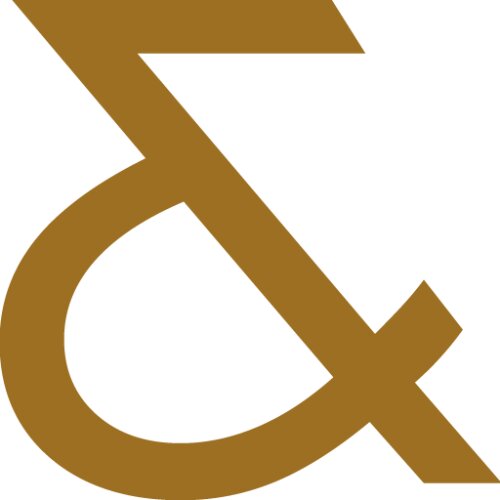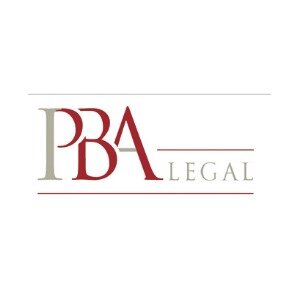Best Insurance Lawyers in France
Share your needs with us, get contacted by law firms.
Free. Takes 2 min.
Or refine your search by selecting a city:
List of the best lawyers in France
About Insurance Law in France
Insurance law in France is a key component of the French legal system, designed to regulate the relationships between policyholders and insurers. It encompasses various types of insurance, including life, health, property, liability, and auto insurance. The French government maintains strict regulatory oversight, ensuring that all operations are compliant with national and European Union legislation. This legal framework aims to protect consumers, guarantee the financial stability of insurance companies, and uphold fair market practices.
Why You May Need a Lawyer
There are several situations where legal assistance may be necessary for insurance-related issues in France:
- Denial of Claims: If your insurance claim is denied or the payout is less than expected, a lawyer can help challenge the decision.
- Policy Disputes: Disagreements over policy terms and conditions can require legal interpretation and advice.
- Compliance Issues: Businesses may need advice to ensure compliance with complex insurance regulations.
- Liability Claims: Legal help may be needed if you are deemed liable in an accident or incident covered by an insurance policy.
- Contractual Breaches: A lawyer can assist if an insurer fails to fulfill contractual obligations.
Local Laws Overview
Insurance law in France is primarily governed by the Code des assurances (Insurance Code), which outlines the rights and responsibilities of insurers and policyholders. Key aspects include:
- Regulation: The industry is regulated by the Prudential Supervision and Resolution Authority (ACPR), ensuring financial stability and consumer protection.
- Consumer Protection: There are strict rules on transparency in insurance contracts and marketing practices to protect consumers.
- Contract Law: Insurance contracts must clearly state coverage, exclusions, and obligations of both parties.
- Dispute Resolution: There are established mechanisms for resolving disputes between insurers and policyholders, including mediation and arbitration.
- Compulsory Insurance: Certain types of insurance, such as vehicle liability, are mandatory for individuals and businesses.
Frequently Asked Questions
1. What types of insurance are mandatory in France?
In France, auto liability insurance is mandatory for all vehicle owners, and certain professional liability insurances are required in fields like medicine and law.
2. Can an insurance claim be denied in France?
Yes, claims can be denied if the claims do not meet the policy's terms or if there is evidence of fraud. A lawyer can help contest a denial.
3. How are insurance disputes resolved in France?
Disputes can be resolved through negotiation, mediation, arbitration, or legal proceedings, depending on the complexity of the case and parties' preferences.
4. What is the role of the ACPR?
The ACPR supervises the insurance sector, ensuring that companies remain financially stable and comply with legal norms to protect policyholder interests.
5. How can one terminate an insurance policy in France?
Policyholders can terminate insurance contracts by sending a written notice according to the policy terms, often with a notice period stipulated in the contract.
6. Are insurance premiums regulated in France?
While premiums are not directly regulated, insurers must follow transparency rules and justify premium calculations to protect consumers.
7. What happens if an insurer becomes insolvent?
If an insurer becomes insolvent, the AGIRA (French Insurance Companies Association) steps in to protect policyholders and ensure claims are paid.
8. Can foreign insurance companies operate in France?
Yes, but they must comply with French insurance regulations and possibly register with the ACPR to offer services legally in France.
9. Is travel insurance mandatory for visiting France?
Travel insurance is not mandatory but highly recommended to cover medical expenses and unexpected events during the stay in France.
10. How does one file an insurance complaint?
You can file a complaint with your insurer through their customer service and, if unresolved, escalate it to a mediator or relevant regulatory authority.
Additional Resources
Here are some resources and organizations that can be beneficial:
- Prudential Supervision and Resolution Authority (ACPR): Provides regulatory guidance and consumer protection information.
- French Federation of Insurance Companies (FFSA): Offers industry news and consumer advice regarding insurance.
- The Insurance Ombudsman (Médiation de l'Assurance): A mediation service for disputes between consumers and insurers.
Next Steps
If you need legal assistance for insurance-related issues in France, consider the following steps:
- Identify Your Needs: Clearly define the issue and gather all relevant documents, such as your insurance policy and any correspondence with the insurer.
- Consult a Lawyer: Seek a lawyer specialized in insurance law to assess your case and provide legal advice.
- Explore Alternative Dispute Resolution: Consider mediation or arbitration to settle disputes outside of court.
- File a Complaint: If necessary, lodge a formal complaint with the ACPR or the Insurance Ombudsman.
By taking these steps, you can effectively address your insurance-related concerns and ensure your rights are protected under French law.
Lawzana helps you find the best lawyers and law firms in France through a curated and pre-screened list of qualified legal professionals. Our platform offers rankings and detailed profiles of attorneys and law firms, allowing you to compare based on practice areas, including Insurance, experience, and client feedback.
Each profile includes a description of the firm's areas of practice, client reviews, team members and partners, year of establishment, spoken languages, office locations, contact information, social media presence, and any published articles or resources. Most firms on our platform speak English and are experienced in both local and international legal matters.
Get a quote from top-rated law firms in France — quickly, securely, and without unnecessary hassle.
Disclaimer:
The information provided on this page is for general informational purposes only and does not constitute legal advice. While we strive to ensure the accuracy and relevance of the content, legal information may change over time, and interpretations of the law can vary. You should always consult with a qualified legal professional for advice specific to your situation.
We disclaim all liability for actions taken or not taken based on the content of this page. If you believe any information is incorrect or outdated, please contact us, and we will review and update it where appropriate.
Browse insurance law firms by service in France
France Attorneys in related practice areas.
Browse insurance law firms by city in France
Refine your search by selecting a city.















